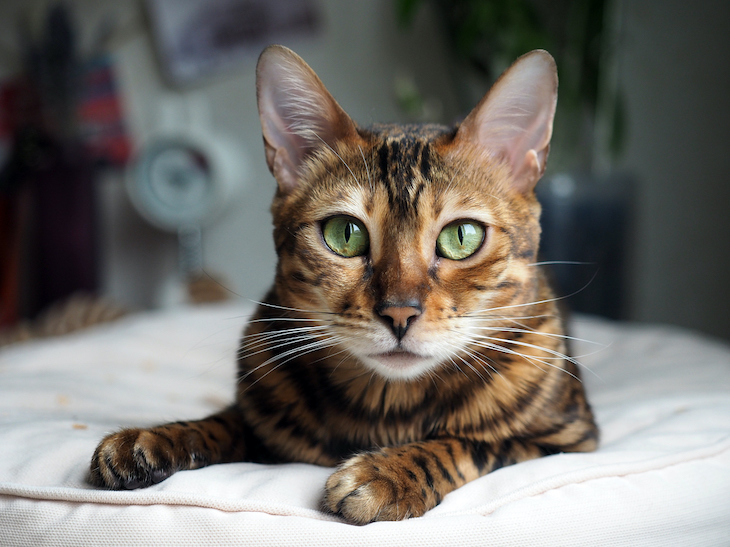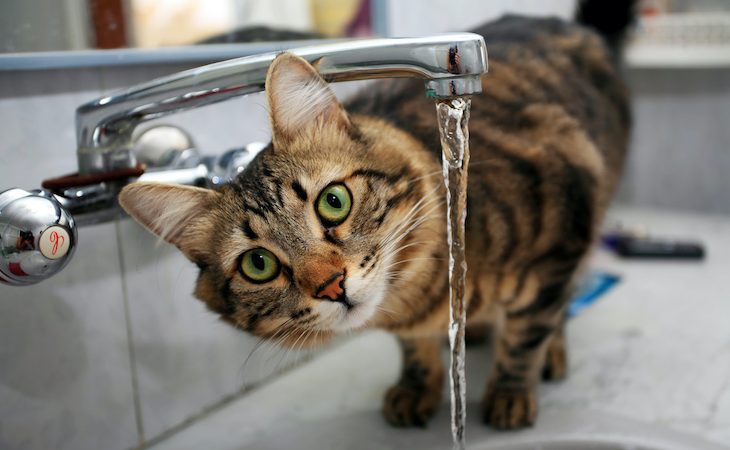Your cat understands more than you may realise. It’s time to explore your cat’s intelligence!
Cats have an acute ability to observe, reason and remember. The cognitive ability to do this makes them naturally intelligent creatures. They also know how to get their way!
Cat intelligence: a complex concept
Regardless of the species, intelligence is often a complex and multi-layered concept that can be particularly intricate to explore.
Despite perceptions that cats can sometimes appear hostile, it is well documented that cats are sensitive creatures, able to feel and express emotions. Their frequent desire for independence is simply one part of this expression.
There have been numerous studies conducted on the intelligence of dog breeds, such as Stanley Coren’s dog intelligence ranking. However, there has been less exploration on the domestic feline, although this is changing. One recent Japanese study found that both cat and dog species have memories that perform equally well.
Adapting and problem solving
In much the same way as dogs, defining the intelligence of cats is largely centred on the ability to adapt to situations and problem solve. As we know, cats are notoriously exceptional hunters. They have the ability to determine the exact location of prey based on even the slightest of sounds.
In addition, researchers believe that cats understand cause-and-effect relationships and have the ability to understand some basic laws of physics – such as being able to fall from heights greater than those of other animals and still (usually) land on their feet.
Like humans, some cats will be more intelligent than others. However, this is not wholly dependent on breed. Although some cat breeds are known to be more intelligent than others, such as the Bengal, oftentimes intelligence comes down to the individual animal.
Solitude vs interaction
It is true that cats need time to themselves; to rest and be calm, to regenerate. However, cats also don’t like being left alone for long periods.
Cats often need a lot of human interaction, whether that’s in the form of a quiet moment together or something a little more active such as a game. A cat’s character, and even their intelligence, is largely influenced by the interactions and experiences it has grown up with; some cats will be accustomed to human interaction from birth while others will prefer more time in the company of themselves. This can influence the degree to which your cat responds to different scenarios, prompts, or environmental changes. This can also influence their ability to self-soothe and seek love and support.

How can I stimulate my cat’s intelligence?
Your cat’s intelligence will depend on its access to problem solving and stimulating activities. As our cats are domesticated and do not depend on a wild, highly dynamic lifestyle, you have a big role to play in helping to entertain and stimulate your cat – particularly for indoor cats.
Studies have shown that cats learn through trial and error. This means educational games can help to stimulate the cognitive areas of your cat’s brain. For example, you could try hiding treats in a sock or under a cup for them to retrieve. Such games help your feline to problem solve whilst at the same time activating memory recall abilities.
There are also a large number of games, such as food labyrinths or game circuits that can be found in pet stores and online.
Observe your cat
Giving your cat an IQ ranking is not exactly a realistic or available option at this stage. In fact, you may already have an idea of their intelligence levels. However, you may also like to observe them more closely in their daily lives and activities. How do they react when you call their name? If they are locked in a room, how do they attempt to get out? What happens when you hide their favorite toy?
All these observations, small and large, will allow you to discover a little more about your cat’s abilities. But fear not! Your cat does not need to be the smartest in the class. However, if they are not receiving enough mental stimulation then you might like to consider doing so through games and toys. Better still, make your own!
But at the end of the day, if our cats are happy and mentally active, then that’s more than enough to love them just as they are – highly intelligent or not!
The Bengal cat – one example of a highly intelligent cat breed
- Memory: Bengal cats have an excellent memory. This can in fact prove to be both a good and a bad thing (more so for the pet parent). For example, if they get stuck in a room all day, they will avoid that same place for several weeks. This may not be ideal if it’s your living room and you all love cuddles together!
- Wild instincts: Because of the Bengal cat’s wild traits, it is only natural for them to be exceptional hunters. However, mice won’t be their only prey. Don’t be surprised to receive a large array of different animals such as squirrels, birds, insects and even moles!
- Learning: Bengal cats are good at learning tricks! Much like dogs, they are easy to train and can be taught the basics such as ‘sit’, ‘lie down’ and ‘high five’. But they can also learn how to open doors, turn light switches on and off, lift up bin lids and even work a lift-and-close kitchen tap!

